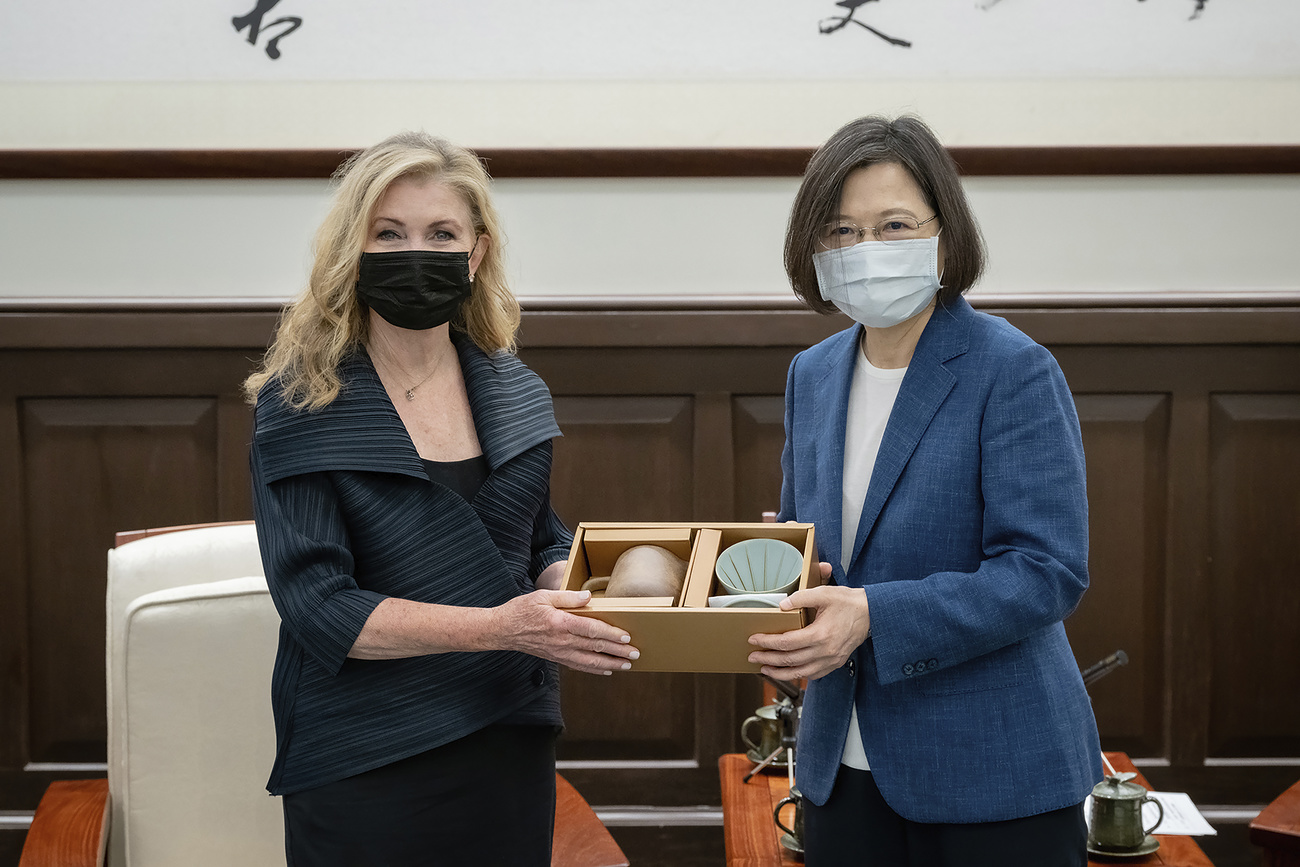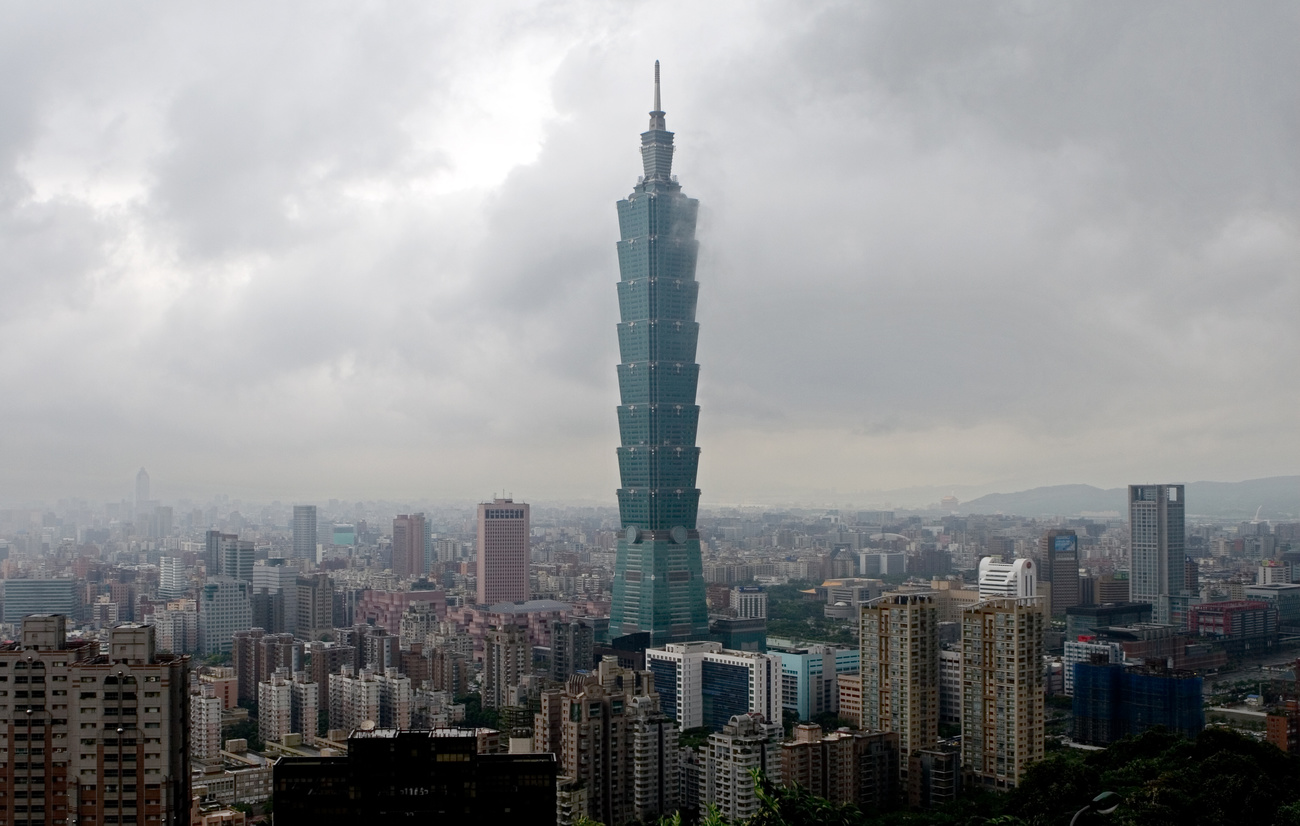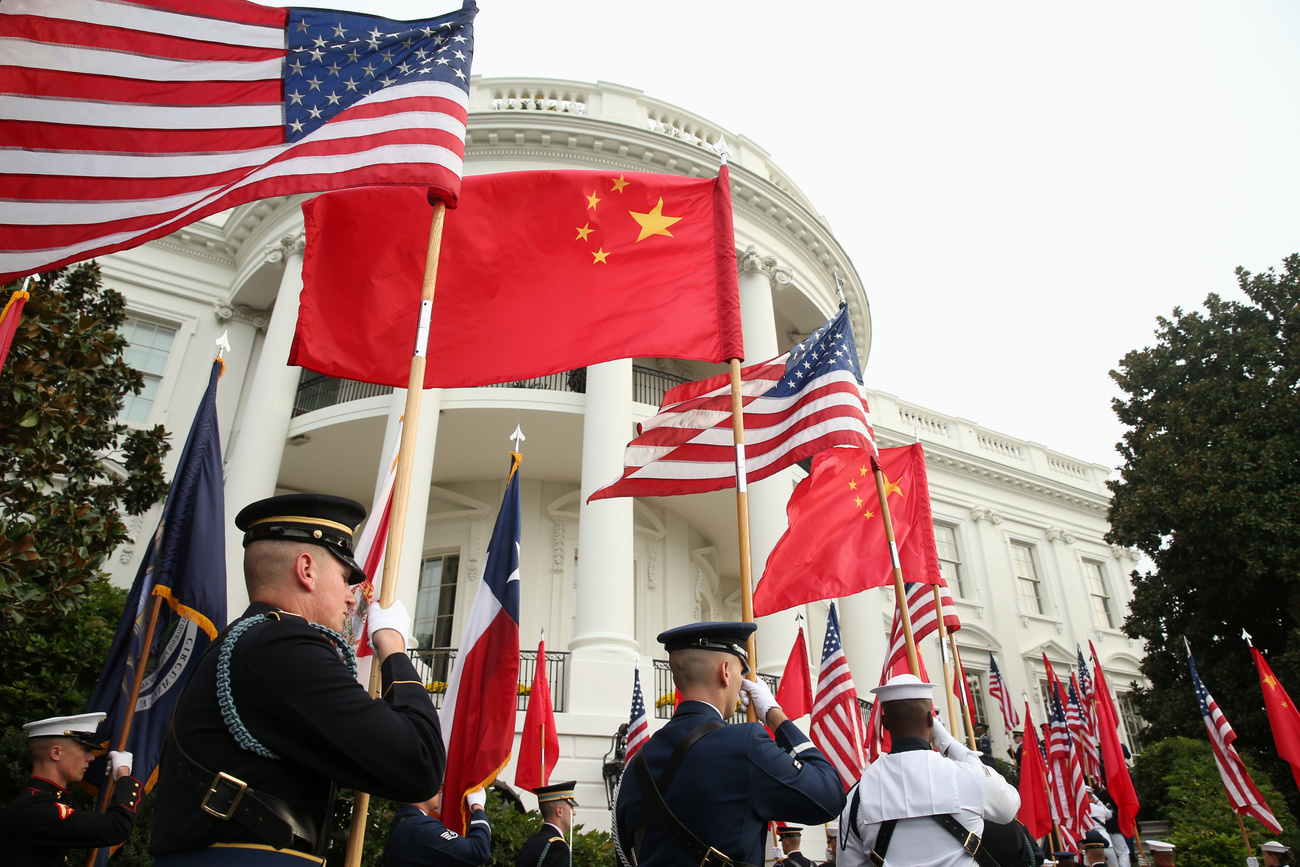
‘Taiwan on everyone’s lips is the last thing China wants’

As tensions remain high in the Taiwan Strait, Swiss-based observers weigh in on the significance of the international show of support for the island – and the limited options Switzerland has if China were to launch an attack.
The unrelenting military exercises around Taiwan that began after US House Speaker Nancy Pelosi travelled to Taipei in early August were meant to serve – in the words of the People’s Liberation Army (PLA) – as “a serious warning” to those who might support independence for what China considers a renegade province.
Foreign elected officials, however, are refusing to stay away: in the last couple of weeks, more delegations from the United States and Japan have travelled to the island to shake hands with President Tsai Ing-wen, with Lithuania, Canada and others set to follow. Some parliamentarians in Bern have been similarly defiant and stepped up calls for stronger bilateral ties with Taiwan. Meanwhile, a Swiss-Taiwan parliamentary friendship group says it’s still determined to visit the island early next year, despite drawing the ire of the Chinese embassy in Switzerland.
None of this should be cause for alarm, according to sinologist Simona Grano, who sees these visits as symbolic moves in support of Taiwan as a democracy.
“In the end it doesn’t change anything, except to make China angry,” says the University of Zurich lecturer. “Taiwan is on everyone’s lips and that’s the last thing China wants.”
Only six years ago, Taiwan was flying under the radar. China tolerated countries maintaining informal economic and cultural relations with Taipei so long as they stuck to an official one-China policy. But since Tsai’s pro-independence party came to power in 2016 and Beijing began taking a more aggressive stance against the self-ruled island, some countries have openly sought closer links with Taipei. China’s military show of force in recent weeks has only emboldened these allies.
No to a trade deal
Just this month, the US announced it would open negotiations on a bilateral deal that seeks to remove discriminatory barriers to trade with Taiwan. The announcement prompted the Chinese government to remind countries they should refrain from dealing with Taipei in any way that had “sovereign connotations”.
Given its strong purchasing power and central role in global supply chains through its semi-conductor industry, Taiwan is an attractive market and Switzerland’s fifth-largest trading partner in Asia. According to University of Zurich sociologist Patrick Ziltener, Swiss businesses in the machinery, watch and chemical sectors could save CHF42 million ($43.5 million) in customs duties annually with a free trade agreement (FTA). Even the Taiwanese representative in Bern, David Huang, has signalled Taipei is keen to sign a deal.

More
Switzerland and Taiwan: economically close, politically distant
But the federal government has repeatedly rejected any economic rapprochement out of fear of retaliation from China. Unlike the US or the European Union, Switzerland has a free trade agreement with the Asian giant, its third-most important trade partner after the US and the EU. Last year trade with China was worth $44 billion (CHF42.1 billion). This makes the Alpine nation vulnerable.
“Some people think we could be blackmailed because our FTA with China is more valuable than any other FTA we have at the moment,” says Ziltener, who has analysed numerous Swiss trade deals. As it is, talks on updating the FTA – originally signed in 2013 – to get tariff reductions on additional Swiss products have stalled, with many speculating that Switzerland’s more critical stance on China’s human rights record in recent years is to blame.
If irritated, Beijing could for example suspend the agreement altogether for a period of time, a retaliatory move it has used against other countries, the lecturer points out. This would hurt Swiss companies that, thanks to the trade deal, enjoy a strong competitive advantage in China relative to competitors from Europe and the US.
The US moving forward with its trade initiative with Taiwan could compel other countries to do the same – just not Switzerland, Grano believes.
“I definitely think Switzerland is more cautious and would follow suit only after other major EU powers, and possibly even the EU parliament, will first go in that direction,” she says.
Costs to economy – and to neutrality
The government’s careful, risk-averse approach to relations with China would be put to the test if the Asian power ever makes good on its threat to “unify” the country by force. In such an event, the US and China could become locked in a serious conflict and Switzerland might be pressured to adopt the same punitive measures as the EU, just as it was after Russia invaded Ukraine. Marie-Gabrielle Ineichen-Fleisch, head of the State Secretariat for Economic Affairs (SECO), has hinted as much, telling the Neue Zürcher Zeitung she “strongly believed” Switzerland would adopt EU sanctions against China in case of an attack.

More
What Switzerland can do about the US-China rivalry
In response, China might extend its own sanctions against the EU to Switzerland, according to an analysis by think tank Avenir Suisse. Or it could decide to make an example of Switzerland through further penalties, a tactic it’s used on small states before, Avenir Suisse said in a recent reportExternal link.
But the consequences of crossing China’s red lines could go beyond business. The Asian country could blacklist Switzerland and call into question its neutrality, just as Russia has done, Grano points out. In other words, like Russia, China could reject any Swiss offers of its good offices – a cornerstone of the Alpine nation’s foreign policy – in any future escalation. Switzerland played host to a meeting of top Chinese and American officials aimed at smoothing tensions between the two powers just last autumn.
Intimidation tactics
Despite China’s military posturing in recent weeks, many analysts believe an attack on Taiwan is not imminent. Russia’s war in Ukraine is likely giving Beijing pause, and it is watching closely to avoid the same mistakes Moscow has made in the protracted conflict.
“China’s proceedings will be much smarter than Russia’s,” says Ziltener. “It will never do something like what [Russian President Vladimir] Putin did in Crimea – ‘taking Taiwan in the night’ and getting away with it.”
It will also want to wait until its navy and army become fully modernised, as it can only assume the US would come to Taiwan’s aid, possibly with support from allies in the region, Grano believes.
For now, China’s military drills should be interpreted more as intimidation than preparations for war, says the sinologist. But as foreign visitors and even the US NavyExternal link refuse to be deterred, “Taiwan’s determination to defend itself” is only being reinforced, in President Tsai’s own words. And that has China worried.
“The [Chinese] fear that the West is slowly but inexorably moving towards lending legitimacy to the idea of Taiwan being an independent country,” says Grano. “They sense that the long-term separation [between China and Taiwan] is turning into a divorce.”

In compliance with the JTI standards
More: SWI swissinfo.ch certified by the Journalism Trust Initiative





























You can find an overview of ongoing debates with our journalists here . Please join us!
If you want to start a conversation about a topic raised in this article or want to report factual errors, email us at english@swissinfo.ch.